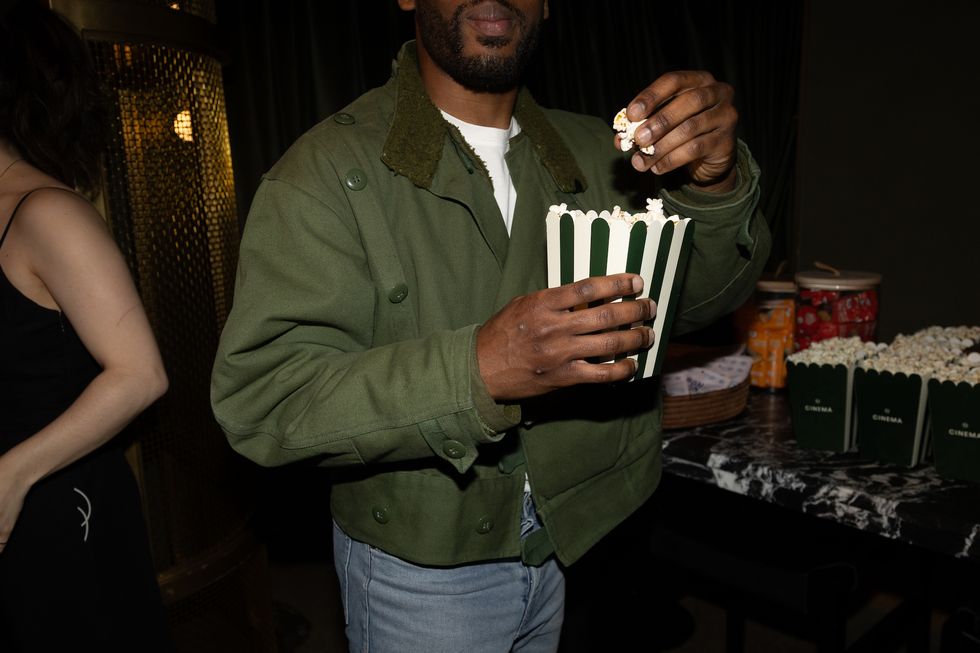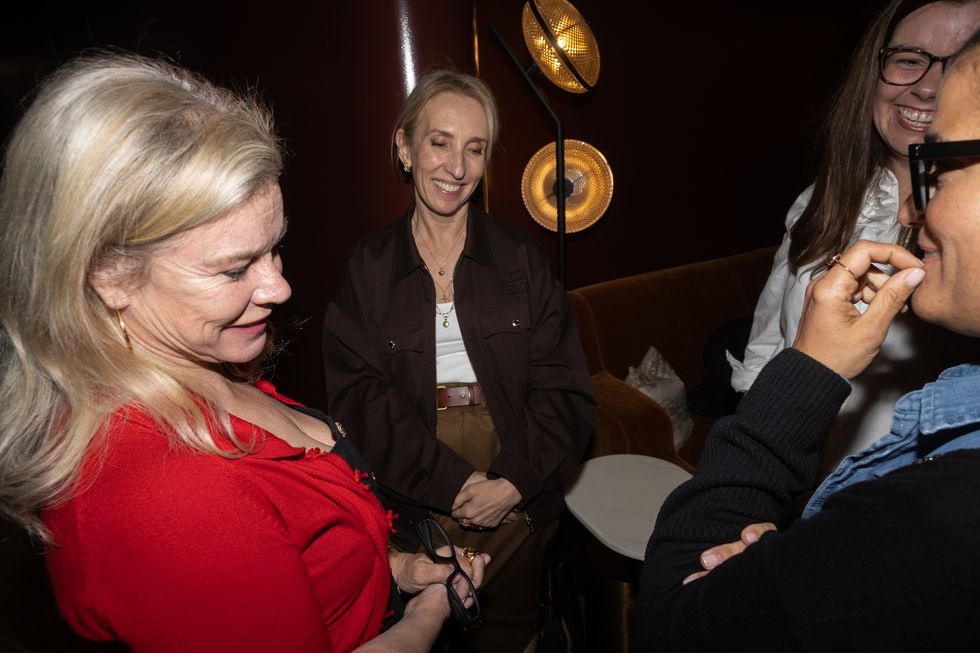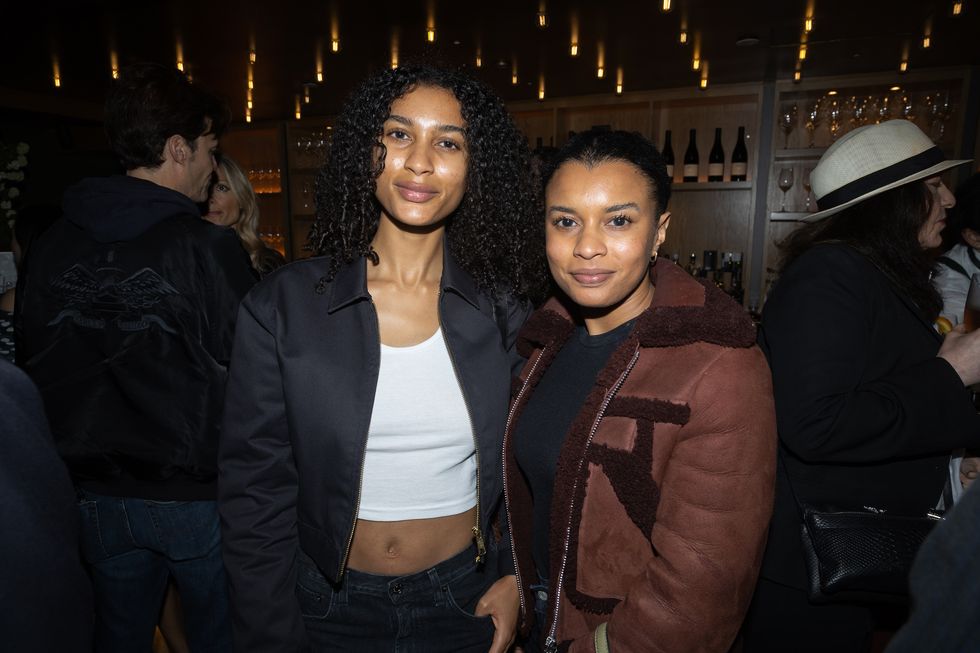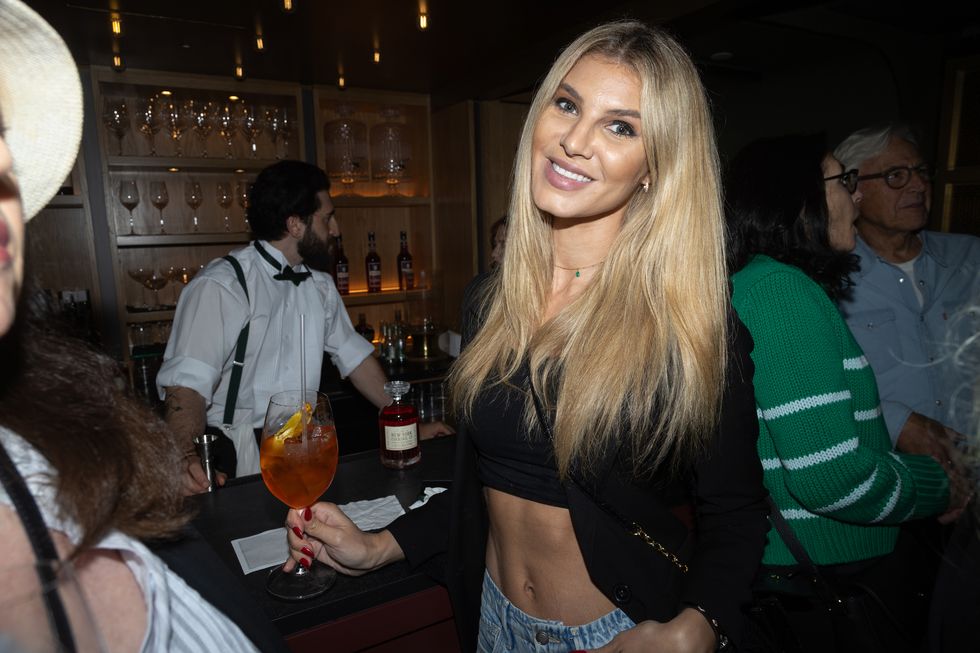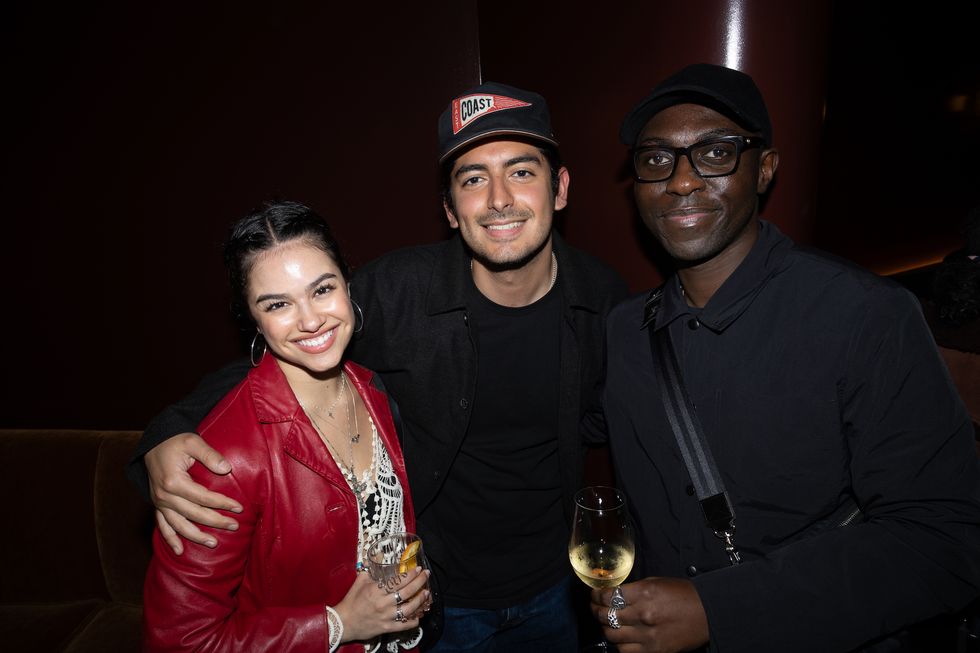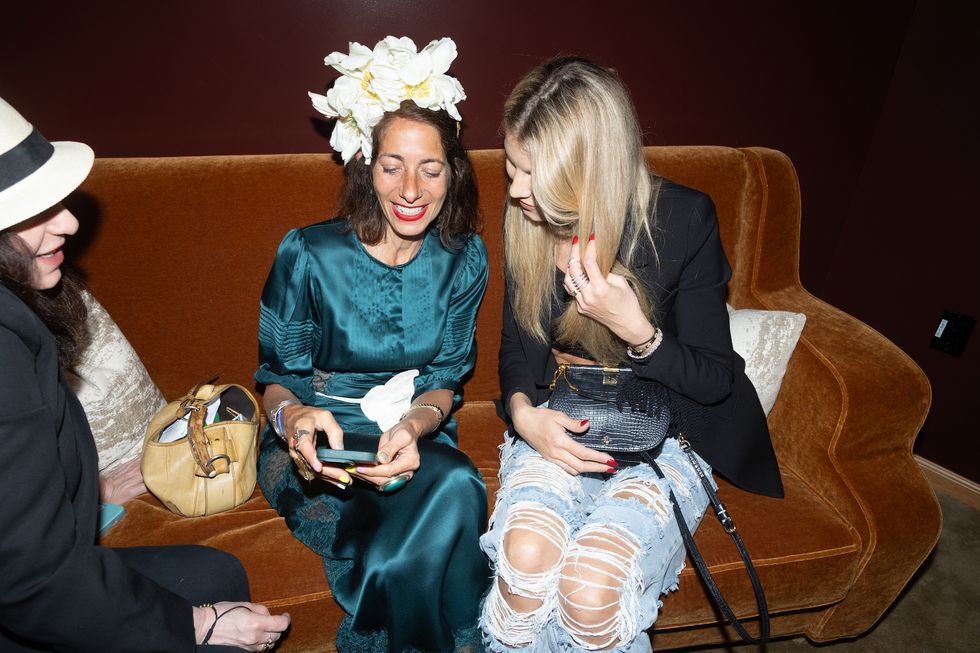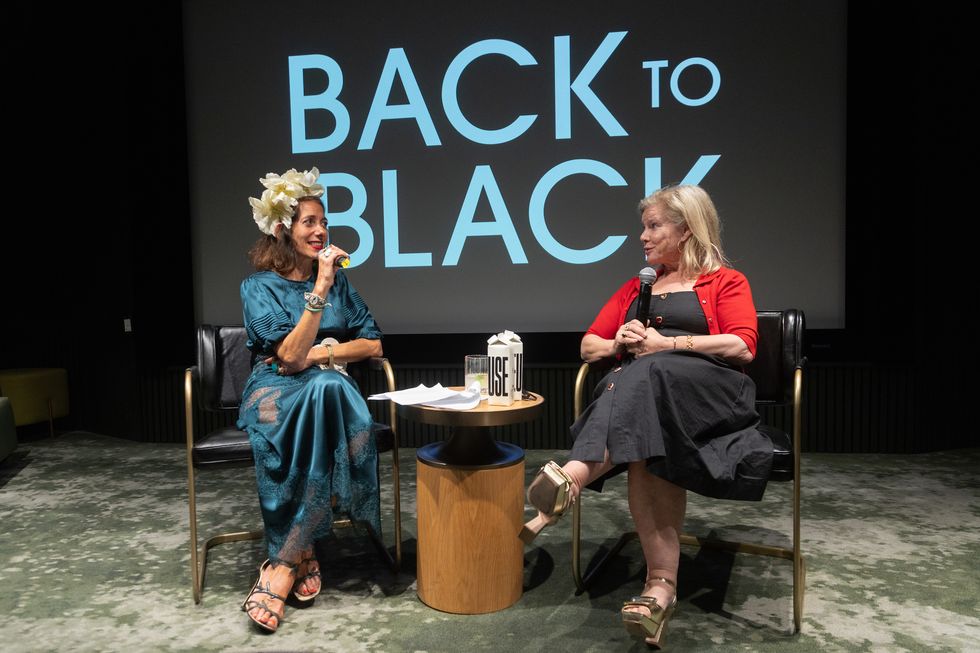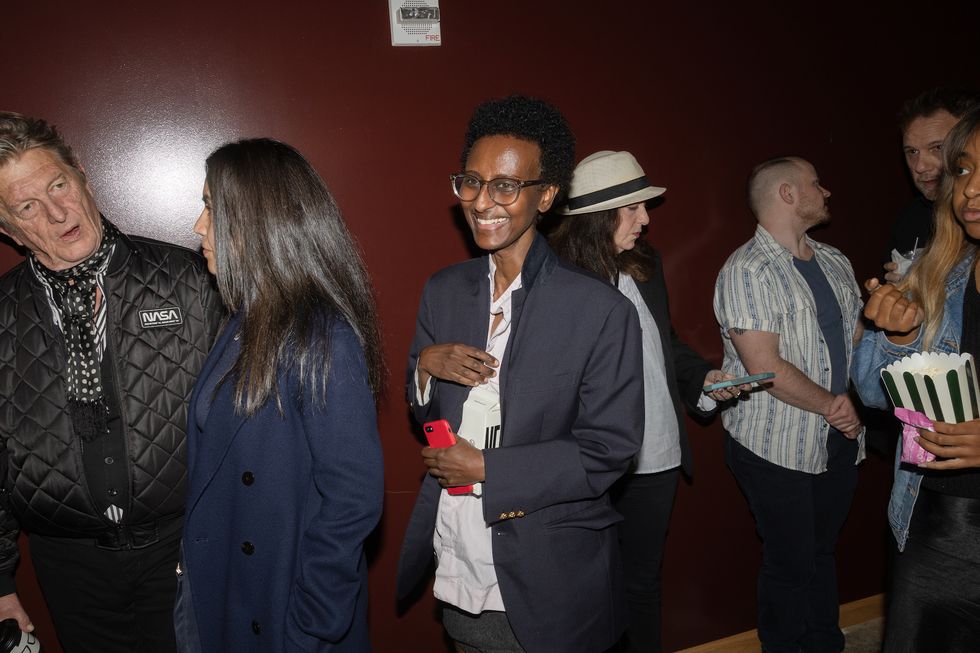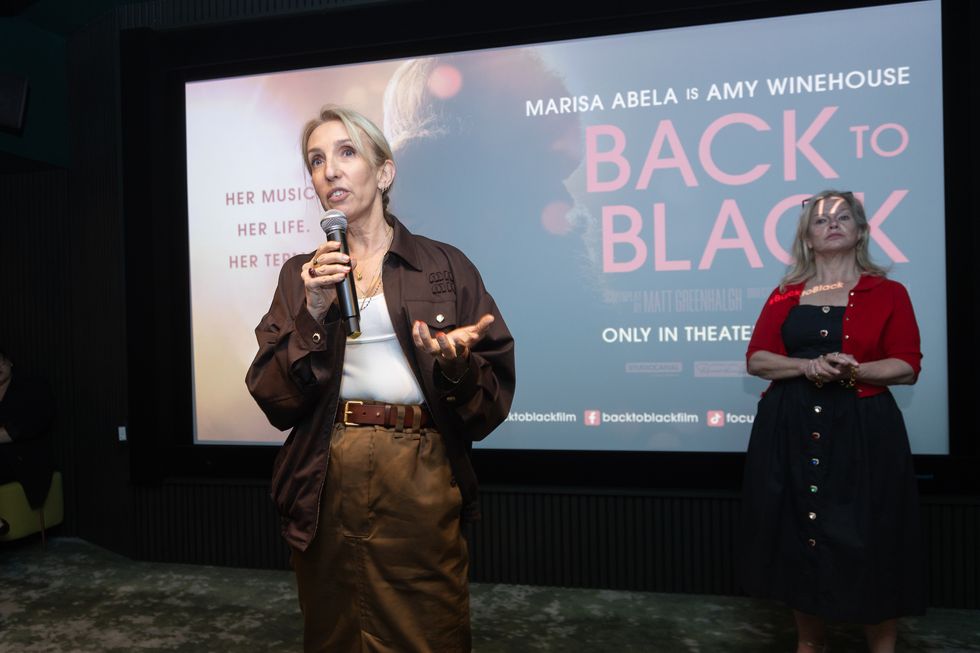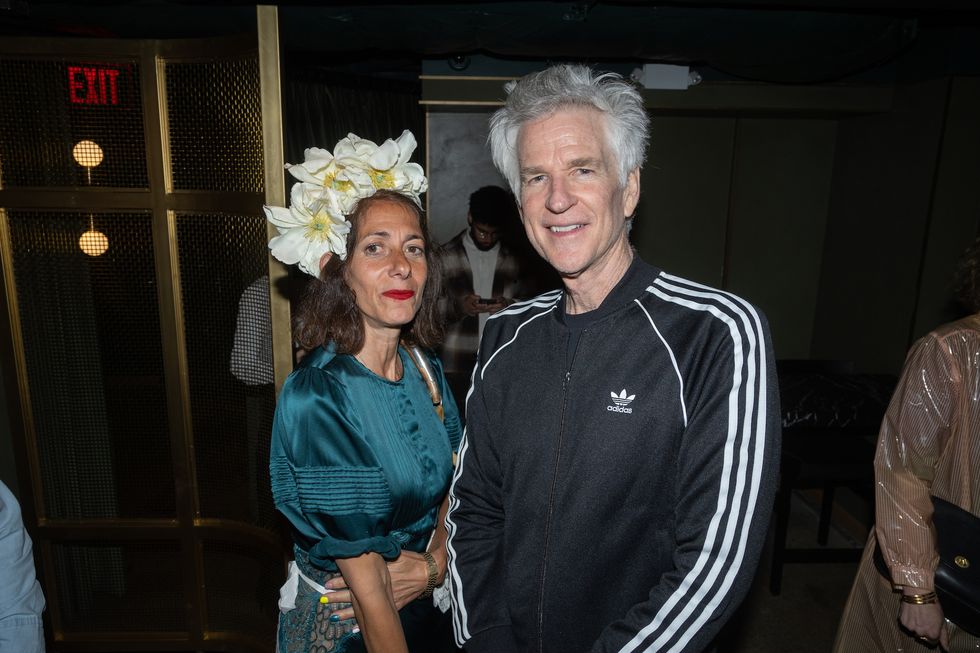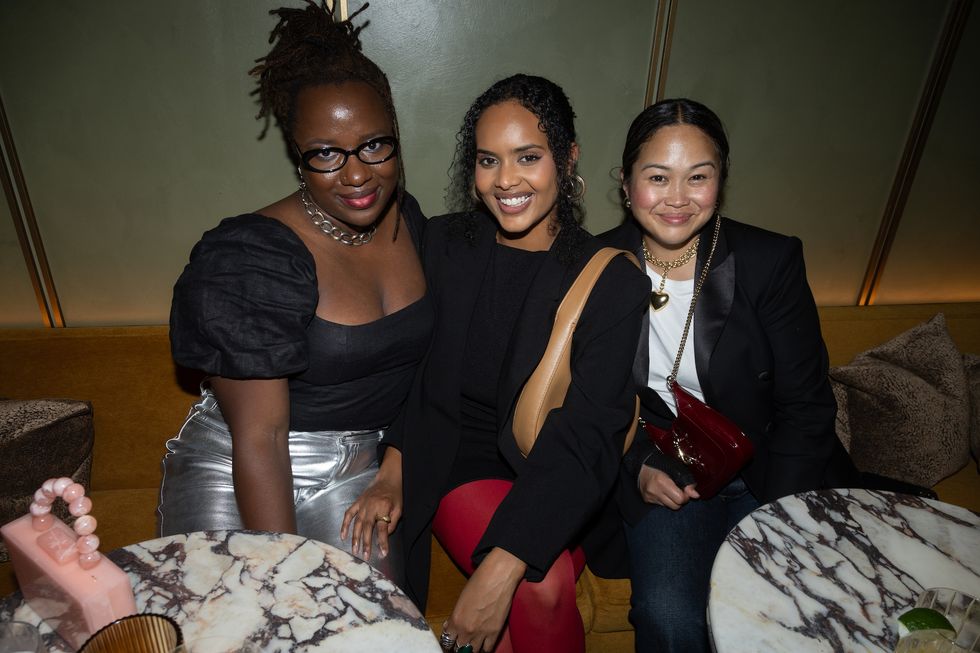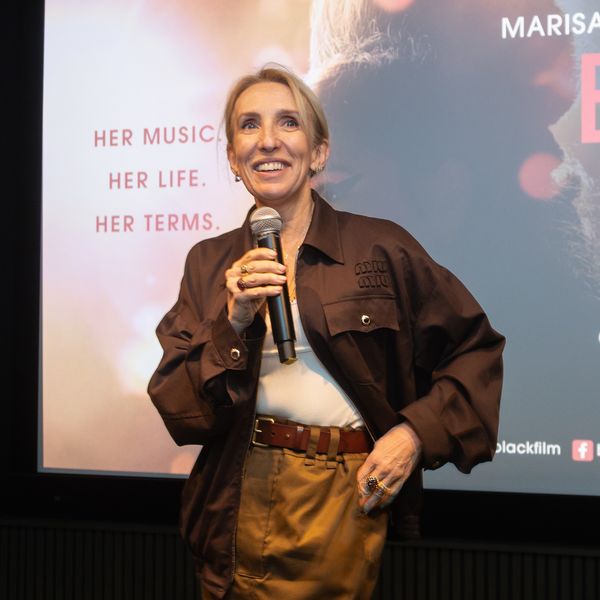
'Back to Black' Shifts Amy Winehouse's Story Towards Fantasy
May 24, 2024
No one, and I mean no one in the history of humanity has ever been more down bad over a man than one Amy Jade Winehouse.
Her torrid, fuckery-filled (and that’s a scientific evaluation) romantic relationship with Blake Fielder-Civil has been captured in great detail, first in the Grammy Award-winning seismic album Back to Black, then in the 2015 documentary Amy, and now in the recent “biopic” Back to Black.
Last week, Neuehouse held a sneak preview of the film in their lush newly renovated cinema space. The green velvet theatre (where I often sneak off to nosh on lunch while I giggle at Slack messages) was transformed into a full-on screening preview experience, stacked with first-class snacks, a post-film cocktail hour, director Sam Taylor-Johnson giving us an introduction to the film, and a Q&A between producer Alison Owen and Neuehouse founder/original it-girl Oberon Sinclair to give us more context around how the film came to be.
“She was famously a member of the 27 club,” Owen tells the packed theater, reflecting on Winehouse’s untimely death. In 2011, the singer who in her short life struggled with alcohol abuse, drug use and a debilitating eating disorder died of alcohol poisoning following a prolonged period of sobriety. “Like a lot of women who become objectified and fetishized in their early death, I felt that it was starting to eclipse the triumph of her life," Owen adds. "Her output and her extraordinary talents were being overlooked because of the focus on her death. So, I felt like it was time to make a movie that really saw things from her point of view.”
In the film, Amy is played Marisa Abel (who you know from Industry, a show that I need to catch up on before it drops a new season in August... but I digress) and, to be fair, she’s sensational. She moves like Amy, she takes on all the vocals in the film and sings like Amy. At times she’s mischievous and playful which, if you’ve seen the 2015 documentary and take her friends and family’s opinion into account, is very much Amy. But there is a tear drop missing in her vocals, a sort of vacant darkness that’s been captured by paparazzi and on stages that isn’t quite emulated in her performance. It always seemed like Amy knew what she was — good, bad and indifferent — and even in her most down bad moments with Blake she knew what he was too. But the point of view captured in Back to Black, leans so far into fantasy, you start to wonder if it's captured reality at all.
At one point in the Q&A, Owen answers a fan question about how they knew what Amy’s purview was. They’d gone through her diaries and written words from the lyrical genius, Owen says, putting those pieces up against her songs like a puzzle coming together. But, unfortunately, we're not always our most reliable narrators. Our realities are made up not just of our experiences but those we experience them with, and by playing Amy’s dad Mitch (who in the documentary meddles in her fame and life in a way that’s self-serving) and ill-fated relationship with Blake with charisma, charm and transparent earnestness, you risk the truth of Amy’s story getting lost.
Some of those moments are so sweet they almost seem worth escaping reality for. When Amy meets Blake — played by Jack O'Connell with so much magnetism, you want to jump into the screen to hang out with him — you stop analyzing the film for accuracy and start enjoying the love story. As he introduces her to The Shangri-Las by mimicking each of the singer's lines in “Leader Of The Pack,” you want them to be together, you need them to end up together. In those moments, as the central star-crossed lovers play off each other with sharp, loving wit, you do get why they'd follow each other giddily into hell. But you also can’t help but wonder (sorry, I’ve been rewatching Sex And The City) just how far off this dream sequence is from reality.
Look, I'd love to do the same thing: to romanticize toxic relationships and act as if all my choices were based fully on love and not an ounce of deep, scary, somewhat primordial fears of not being good enough that manifest in relationships that have mirrored that fear right back at me. But owning your shit is the only way to change it. So, framing Back to Black as an encapsulated time period of deep love and unfortunate addiction isn't actually the whole story, which makes me wonder if it's fair to call it the story at all.
A few weeks ago, while stumbling upon Back to Black on vinyl in a Four Seasons Hotel Penthouse (I promise to give you more context on that later, keep it locked here at PAPER!). I was stunned by what I had missed as a college student dancing along to Rehab with my Jessica Simpson nude hills sticking to the bar floor beneath me. The heartache, the longing, the reverence she had for this comparatively average man. You'd think he'd been an actual angel saving Winehouse from eternal damnation or from a god who somehow, despite all her flaws, had chosen this mere mortal, this lowly being, to love.
But maybe that’s not the truth either. The only thing any of us can know for sure is that Amy was a deeply talented human being who wrote and sang and created with otherworldly energy we may never be lucky enough to experience in our lifetimes again. Someone who could make you dance along to gorgeous songs about an addiction-laden love affair? Shakespeare? Found wanting.
“When Alison asked me to come on this, I said yes without processing the enormity of what I was talking about and how important her legacy is to so many people,” Taylor-Johnson tells the audience before the film began. “I said, let's focus on the music because I think the music should tell us the story. As soon as we decided that’s what we were going to do it was so clear because it empowered her again. I felt like she’d become such a victim of the tragedy that we were all forgetting how brilliant she is as a musician and how when we listen to the music, we all connect with her. So, let's see her tell us the story, and that’s what you’re going to see. Ostensibly that’s a love story, because Back To Black is the love story of her and Blake. Whatever we think about that, our judgments, our opinions are sort of by the by because she loved him, and he loved her. It’s one of the most powerful tragic love stories that created one of the best albums of our time.”
At this point, Taylor-Johnson explains the sensation we're about to feel while watching the film. “It’s not a biopic. It's not 'cradle-to-grave,' as they say,” she says. “It’s a specific part of her life, the part of her life that best explains the creative brilliance of her.”
Photography: Lyss Lester
MORE ON PAPER
ATF Story
Madison Beer, Her Way
Photography by Davis Bates / Story by Alaska Riley
Photography by Davis Bates / Story by Alaska Riley
16 January
Entertainment
Cynthia Erivo in Full Bloom
Photography by David LaChapelle / Story by Joan Summers / Styling by Jason Bolden / Makeup by Joanna Simkim / Nails by Shea Osei
Photography by David LaChapelle / Story by Joan Summers / Styling by Jason Bolden / Makeup by Joanna Simkim / Nails by Shea Osei
01 December
Entertainment
Rami Malek Is Certifiably Unserious
Story by Joan Summers / Photography by Adam Powell
Story by Joan Summers / Photography by Adam Powell
14 November
Music
Janelle Monáe, HalloQueen
Story by Ivan Guzman / Photography by Pol Kurucz/ Styling by Alexandra Mandelkorn/ Hair by Nikki Nelms/ Makeup by Sasha Glasser/ Nails by Juan Alvear/ Set design by Krystall Schott
Story by Ivan Guzman / Photography by Pol Kurucz/ Styling by Alexandra Mandelkorn/ Hair by Nikki Nelms/ Makeup by Sasha Glasser/ Nails by Juan Alvear/ Set design by Krystall Schott
27 October
Music
You Don’t Move Cardi B
Story by Erica Campbell / Photography by Jora Frantzis / Styling by Kollin Carter/ Hair by Tokyo Stylez/ Makeup by Erika LaPearl/ Nails by Coca Nguyen/ Set design by Allegra Peyton
Story by Erica Campbell / Photography by Jora Frantzis / Styling by Kollin Carter/ Hair by Tokyo Stylez/ Makeup by Erika LaPearl/ Nails by Coca Nguyen/ Set design by Allegra Peyton
14 October
